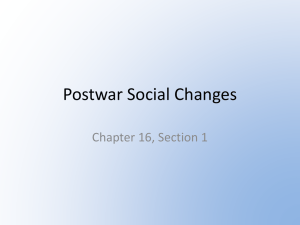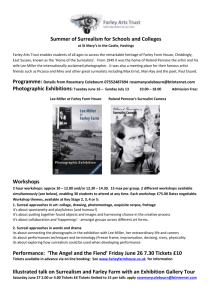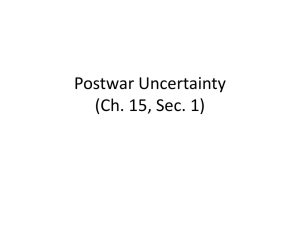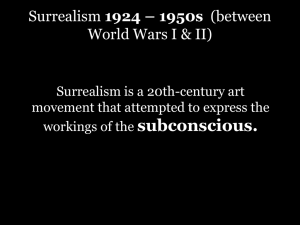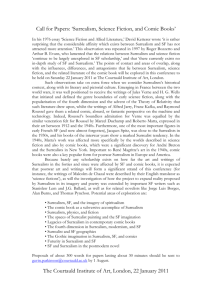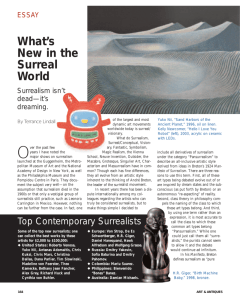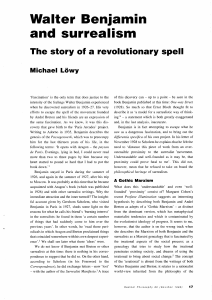was surrealism merely a “childhood disease of base materialism”
advertisement
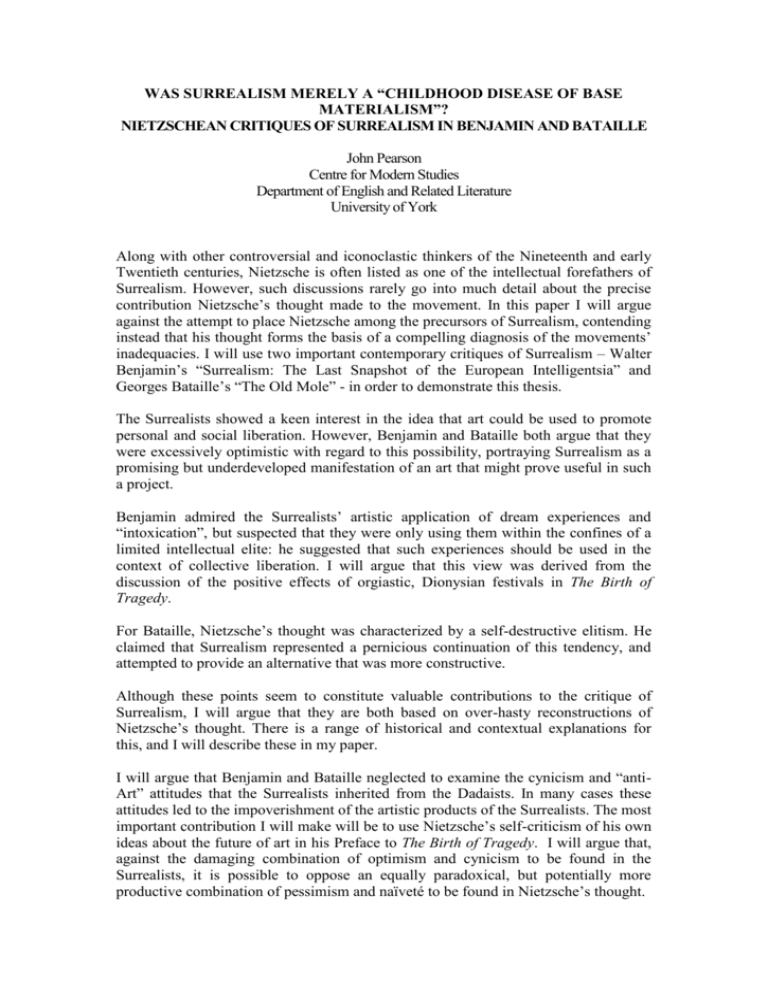
WAS SURREALISM MERELY A “CHILDHOOD DISEASE OF BASE MATERIALISM”? NIETZSCHEAN CRITIQUES OF SURREALISM IN BENJAMIN AND BATAILLE John Pearson Centre for Modern Studies Department of English and Related Literature University of York Along with other controversial and iconoclastic thinkers of the Nineteenth and early Twentieth centuries, Nietzsche is often listed as one of the intellectual forefathers of Surrealism. However, such discussions rarely go into much detail about the precise contribution Nietzsche’s thought made to the movement. In this paper I will argue against the attempt to place Nietzsche among the precursors of Surrealism, contending instead that his thought forms the basis of a compelling diagnosis of the movements’ inadequacies. I will use two important contemporary critiques of Surrealism – Walter Benjamin’s “Surrealism: The Last Snapshot of the European Intelligentsia” and Georges Bataille’s “The Old Mole” - in order to demonstrate this thesis. The Surrealists showed a keen interest in the idea that art could be used to promote personal and social liberation. However, Benjamin and Bataille both argue that they were excessively optimistic with regard to this possibility, portraying Surrealism as a promising but underdeveloped manifestation of an art that might prove useful in such a project. Benjamin admired the Surrealists’ artistic application of dream experiences and “intoxication”, but suspected that they were only using them within the confines of a limited intellectual elite: he suggested that such experiences should be used in the context of collective liberation. I will argue that this view was derived from the discussion of the positive effects of orgiastic, Dionysian festivals in The Birth of Tragedy. For Bataille, Nietzsche’s thought was characterized by a self-destructive elitism. He claimed that Surrealism represented a pernicious continuation of this tendency, and attempted to provide an alternative that was more constructive. Although these points seem to constitute valuable contributions to the critique of Surrealism, I will argue that they are both based on over-hasty reconstructions of Nietzsche’s thought. There is a range of historical and contextual explanations for this, and I will describe these in my paper. I will argue that Benjamin and Bataille neglected to examine the cynicism and “antiArt” attitudes that the Surrealists inherited from the Dadaists. In many cases these attitudes led to the impoverishment of the artistic products of the Surrealists. The most important contribution I will make will be to use Nietzsche’s self-criticism of his own ideas about the future of art in his Preface to The Birth of Tragedy. I will argue that, against the damaging combination of optimism and cynicism to be found in the Surrealists, it is possible to oppose an equally paradoxical, but potentially more productive combination of pessimism and naïveté to be found in Nietzsche’s thought.
